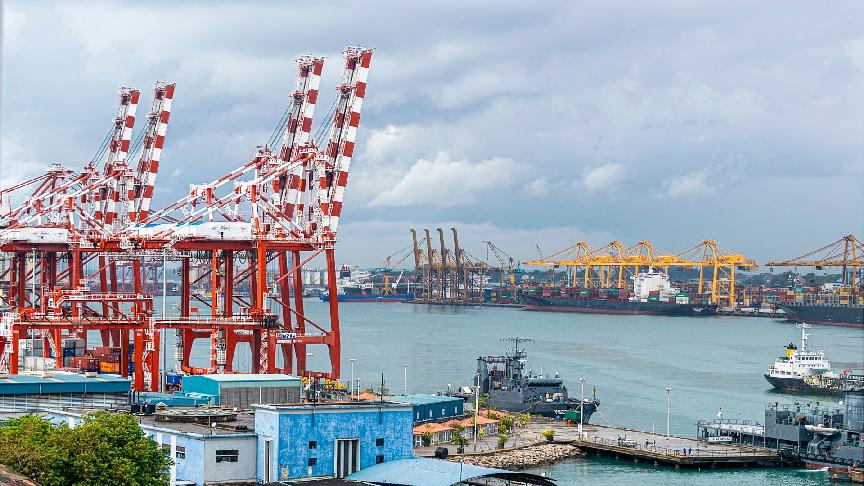14 February 2025 (Lloyd's List) - GLOBAL ports operator DP World has its customers in the Latin America and sub-Saharan Africa regions in mind as it sets up a cross-border payment solution based on stablecoins.
Explaining its rationale for the initiative, which it launched at this year’s World Economic Forum and is in its early planning phase, the logistics player said: “DP World’s vision for stablecoin-based payments aligns with our broader goal of reducing inefficiencies in global trade.”
DP World said customers in emerging markets, such as Asia and Africa, often grapple with prolonged settlement times, restricted access to finance and a lack of transparency which have hindered the growth of trade flows.
The stablecoin-based solution seeks to address these issues and not compete with existing blockchain platforms that are addressing other challenges in the supply chain.
“Blockchain technology is emerging as a key enabler of transparency, security and efficiency in cross-border transactions, and our initiative complements existing trade platforms like GSBN (Global Shipping Business Network) by addressing a specific challenge — streamlining cross-border payments,” it said.
DP World’s stablecoin technology will ensure faster, more secure and more accessible payments and it aims to facilitate seamless cross-border financial transactions, especially in emerging markets, which are usually in regions where many businesses struggle with access to global banking infrastructure.
Group chairman and chief executive Sultan Ahmed bin Sulayem said: “By introducing stablecoin-based payment options, we are not just addressing a critical gap in the trade ecosystem but also reaffirming our commitment to innovation and leadership in global commerce.”
He added: “We believe this initiative will redefine the way businesses engage in cross-border trade, particularly in regions where financial barriers have limited potential.”
In relation to specific roll-out plans, DP World said: “At this stage, while we are unable to disclose details of how we intend to cater to specific jurisdictions, we do expect emerging markets (such as LatAm and Sub-Saharan Africa) to be eager adopters of a stablecoin-based payments solution.”
According to US-based blockchain analysis firm Chainalysis these two regions are the fastest growing for retail and professional-sized stablecoin transfers, growing 40% in 2024.
Stablecoins are a type of cryptocurrency that has its value linked to a physical asset in the traditional finance system. They are seeing increasing use in Decentralised Finance and Trade Finance applications.
DP World was also vague about potential partners and choice of stablecoin, although it was clear that the initiative would not involve launching its own stablecoin and that it would take a collaborative approach rather than trying to fragment existing trade platforms.
“One of the primary goals of this initiative is to provide a universal solution that addresses the financial challenges of businesses in emerging markets,” DP World said.
“We are actively exploring collaborations with key institutions and technology providers across major markets, including Singapore, India and the UAE,” it said.
“While we cannot disclose all details at this stage, our partnerships will focus on leveraging expertise in blockchain technology, regulatory compliance, and global payment solutions”.
Blockchain applications in shipping have been increasing but have also had an uneven success record.
A previous example of stablecoin application in shipping, 300Cubits, which sought to solve the problem of container booking no-shows, was forced to close within a year due to lack of commercially viable volume.
Predominantly China-backed GSBN is a neutral, not-for-profit consortium focusing on paperless, accessible and sustainable global trade.
It has so far mainly used blockchain technology for electronic bills of lading and green certificates. The platform claims it has more than 20,000 users and accounted for over half of all containers handled globally.
In November 2023, GSBN tied up with Alibaba financial arm Ant Group’s technology brand Zan to tokenise eBLs, which could be an alternative means of providing blockchain-based trade finance.







